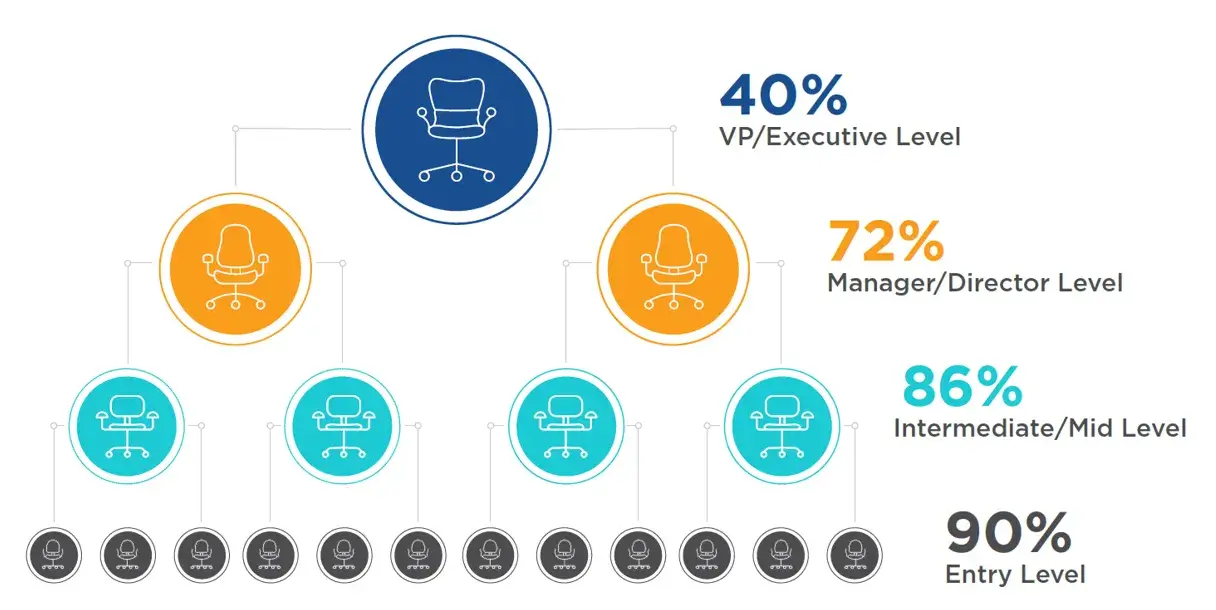Last month, we published our 2018 Pre-Employment Testing Benchmark Report based on a survey of hiring professionals across a wide variety of industries. The report uncovered some interesting insights into how companies are incorporating pre-employment assessments into their hiring processes.
One of the most interesting discoveries wasn’t about what or when companies are testing, but who they’re testing. In the survey, we asked hiring professionals for which job levels they administer pre-employment tests, and here’s what we found:

90% of the survey-takers said that they test applicants applying to entry level positions; 86% said they test for intermediate/mid-level positions; 72% said they test for manager/director level positions, and just 40% said they test for VP/executive-level positions. From this data, a pretty clear pattern reveals itself: the higher the job level, the less likely a company is to administer pre-employment tests for that role.
There are a couple of reasons why this might be happening. After all, companies are likely to receive more applicants for entry level roles, so pre-employment tests might be used as a way to filter through large applicant pools early on in the hiring process. When you compare that to VP or executive level roles, many of which are filled by recruiting services or through networking referrals, you’re likely to receive significantly fewer candidates per job opening, and these candidates will have a ton of work experience that you can use to make your hiring decision.
However, the primary value of pre-employment testing isn’t just to “filter” candidates. Pre-employment testing provides an objective and predictive measure of how likely a candidate is to succeed on the job, far more predictive of job success than resumes or unstructured interviews. And scientifically validated tests aren’t just predictive for lower level roles; they’re predictive across the board, all the way up to the executive level.
Through that lens, pre-employment tests provide an additional, objective layer of information that employers can use to make more informed hiring decisions. Which begs the question, when hiring for upper level roles, why wouldn’t you make use of an additional piece of information about your candidates? There are a ton of reasons why you might consider giving assessments to upper level roles. After all, these roles are much higher stakes, and the cost of turnover at this level is much higher than the cost of turnover at the entry or intermediate level. Ultimately it's up to the company to decide if the risk/reward ratio of testing upper level roles is worth it based on their particular circumstances.
Want more insight into trends in hiring and pre-employment testing? Check out our webinar where we take a deep dive into the data from the 2018 Pre-Employment Testing Benchmark Report.





